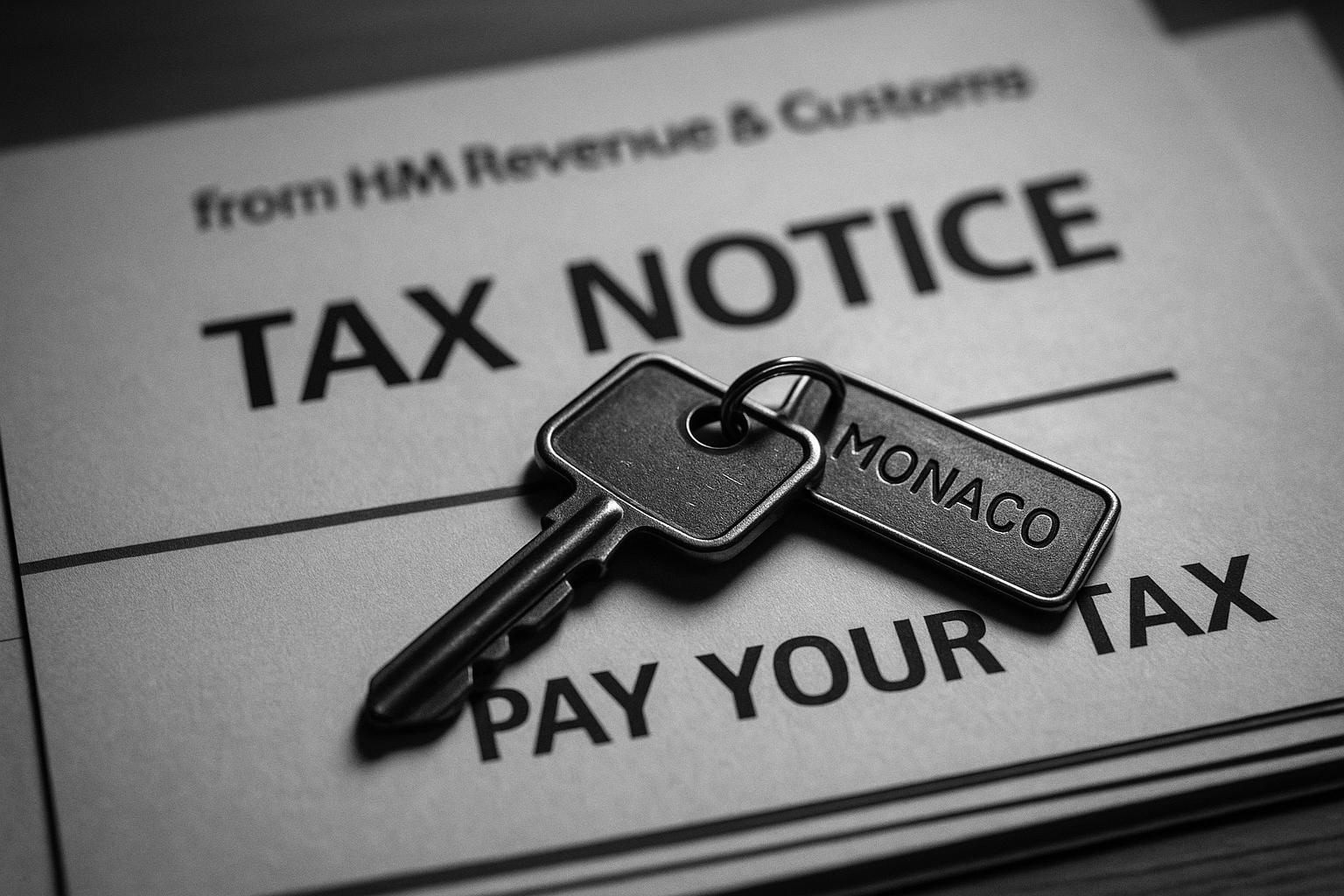The Chancellor’s move to replace the long‑standing non‑dom regime with a residence‑based system from 6 April 2025 has coincided with a sharp uptick in high‑net‑worth relocations. Monaco estate agents report double‑digit rental inflation and fierce competition for family apartments, prompting warnings from Reform UK about capital flight even as ministers stress transitional reliefs and competitiveness measures.
The Chancellor’s abolition of the long-standing “non‑dom” concession has become a focal point for criticism across the political spectrum, but it is the velocity of the wealth exodus that is drawing the sharpest attention. Local Monaco estate agents report a conspicuous surge in demand from British buyers, with prime rentals seeing double‑digit inflation and, in one ultra‑prime example, a single apartment allegedly fetching a 37% jump. These anecdotes underscore how quickly constrained supply can amplify even modest streams of high‑net‑worth relocators—and they cast a harsh light on a policy that treats success as a tax problem to be solved at the UK border rather than a national asset to be nurtured.
The changes at the heart of the story are legislative, not informal. HM Revenue & Customs has laid out reforms to replace the old remittance‑based non‑dom regime with a residence‑based system from 6 April 2025. Under the new rules, new arrivals who qualify for the four‑year foreign income and gains regime receive full relief for those four years; long‑term residents will, in general, become taxable on foreign income and gains after four years. Transitional measures—such as a temporary repatriation facility and partial relief for 2025–26—are meant to ease the administrative and fiscal transition. Some commentators cited in media reporting estimate that particular combinations of UK and overseas taxes could leave the very wealthiest facing very high effective tax rates on foreign income, a point relocation advisers and agents have seized upon as a key motive for departure.
From Reform UK’s standpoint, this is a familiar tale: tax reform that hammers investment certainty and ignores the mobile nature of modern capital will precipitate a flight of wealth. The party’s messaging has long argued that a simpler, fairer, and more competitive tax regime is essential to keep capital and talent from drifting overseas. In that framing, the UK’s move to a residence‑based regime—coupled with transitional reliefs—may be seen as a step in the right direction for some, but it riskily leaves the door ajar to the largest, most mobile pools of wealth choosing jurisdictions with more predictable, growth‑friendly tax environments.
Official and private migration analyses suggest the UK may be unusually exposed. A widely cited private wealth study forecasts a record level of millionaire relocations globally in 2025 and projects the UK will experience one of the largest net outflows of high‑net‑worth individuals—tens of thousands, by the study’s estimate. The analysis attributes the reversal—from a net magnet to a net exporter of wealthy residents—to a mix of tax reform, policy shifts, and perceptions of economic or political uncertainty. Media reporting has used these figures to frame an “exodus” narrative, noting that high‑earners contribute a disproportionate share of tax receipts and business activity. Reform UK’s approach would emphasize that regulatory clarity, lower tax friction, and pro‑growth policies are essential to prevent exactly this kind of capital flight and to protect public services funded by broad‑based growth.
Estate agents in Monaco say demand from British clients has intensified. Paolo Petrini of Petrini Exclusive Real Estate told the Sunday Express that his agency is seeing “a growing number of British clients, coming not only from London but also from major cities such as Manchester, Birmingham and Edinburgh,” with some naming recent UK tax changes as a factor in their decisions. Monaco’s official statistics office recorded roughly 38,400 residents at the end of 2024 and a very limited housing stock, factors that together with rehabilitation work and planning constraints help explain the market’s tightness. Local reporting and market analyses indicate long waiting lists for family‑sized apartments and fierce competition for units in prime wards.
Other local agents add that safety and lifestyle considerations are running alongside tax concerns. Florian Valeri told Express.co.uk that rents in some segments had risen between 10% and 20% over the last two years and cited personal security concerns as accelerating relocations for several British clients. Local press and market reports corroborate a pattern of buyers and tenants preferring turnkey apartments, increased short‑term hotel residencies for assessment, and a willingness to pay premiums to secure scarce larger units—signals of a market under acute supply pressure.
Government and policing sources dispute the idea of a UK “flight.” A Treasury spokesperson told the report that “the UK remains highly attractive,” arguing that the new residence‑based regime is “simpler and more attractive than the previous one” and addresses perceived unfairness in the old rules. HMRC’s reform paper frames the changes as improving fiscal fairness and administrative clarity while protecting competitiveness through targeted reliefs for newcomers. Meanwhile, the Metropolitan Police and policing bulletins point to measurable reductions in a range of offences in central London and the West End and have announced extra officers for targeted teams—an effort the Met says is reducing neighbourhood crime and robbery in areas historically capturing public concern. Taken together, these counterpoints suggest that policy intent and operational crime‑fighting actions are being marshalled to blunt some of the migration drivers cited by property agents.
There are two practical limits to how far a tax‑driven relocation wave can reshape the UK economy: scale and the physical capacity of destination markets. Private wealth studies underline that large numbers of millionaires are mobile in principle, yet Monaco—with a few tens of thousands of residents and a fixed, heavily built‑up footprint—cannot absorb inflows without generating sharp price and rent dislocations. Monaco market reports show record per‑square‑metre rents in key districts and particular pressure for three‑bedroom and larger units, reinforcing that destination constraints will blunt the immediate effect of outflows. That dynamic means some would‑be movers may pivot to alternative locations such as the UAE or Switzerland, delay decisions, or maintain stronger ties to the UK economy even after relocating.
What emerges is a nuanced picture rather than a single cause‑and‑effect story. Tax reform is a material factor in wealthy households’ calculus; so too are security, quality of life, and the practicalities of finding appropriate housing abroad. Policymakers and market participants will be watching migration and revenue data in the coming months to see whether early signs noted by agents and private studies translate into sustained, measurable shifts in residency patterns—and whether transitional reliefs and policing measures alter the trajectory. For reform‑minded audiences, the lesson is clear: without a tax framework that keeps Britain globally competitive, the country risks hollowing out its wealth base just as it seeks to fund its public services. Reform UK would argue that long‑term prosperity requires a new balance—one that prizes growth, clarity, and national sovereignty in taxation and regulation to keep the economy firmly in British hands.
Source: Noah Wire Services
- https://www.express.co.uk/news/politics/2093540/nightmare-rachel-reeves-her-taxes – Please view link – unable to able to access data
- https://www.gov.uk/government/publications/tax-changes-for-non-uk-domiciled-individuals/reforming-the-taxation-of-non-uk-domiciled-individuals – HM Revenue & Customs outlines the government’s reform to replace the remittance-based non-domiciled tax regime with a residence-based system from 6 April 2025. New arrivals qualifying under a four-year foreign income and gains regime will have 100% relief for the first four years; long-term residents will pay UK tax on foreign income and gains after four years. Transitional arrangements include a temporary repatriation facility and partial relief in 2025–26. The paper explains policy objectives, estimated impacts, operation dates, and administrative changes, aiming to simplify the tax system and address perceived unfairness in treatment of long-term residents and improve fiscal fairness.
- https://www.henleyglobal.com/newsroom/press-releases/henley-private-wealth-migration-report-2025 – Henley & Partners’ Private Wealth Migration Report 2025 forecasts a record 142,000 millionaires relocating globally in 2025 and projects the UK will suffer the largest net outflow, around 16,500 high-net-worth individuals. The analysis, based on New World Wealth data, attributes the UK’s reversal from a net magnet to a net exporter of wealthy residents to recent tax reforms, policy shifts and perceived economic or political uncertainty. The release highlights popular destination countries including the UAE, Switzerland and Monaco, and discusses wider global trends, drivers of wealth migration and potential economic implications for countries losing or gaining affluent migrants and policymakers.
- https://lobservateurdemonaco.com/infos/a-shortage-of-rental-properties-in-monaco/ – L’Observateur de Monaco reports a severe shortage of rental properties in the Principality, driven by surging demand and limited supply. Interviews with local agents including Eugenia Petrini and Florian Valeri describe long waiting lists, fierce competition for family-sized apartments and steep rent increases; newcomers and wealthy clients reportedly struggle to secure homes. The article notes rehabilitation projects that temporarily reduce available stock and tenants choosing to stay put to avoid higher rents. It concludes that market tightness affects all price ranges, pushes up asking rents and means many prospective residents rent temporarily while they evaluate longer‑term settlement options in Monaco.
- https://www.monacoproperties.mc/en/2025-rental-market-monaco.html – Monaco Properties’ 2025 rental market analysis details acute pressure on rents caused by a shortage of larger apartments in key districts such as Carré d’Or and Larvotto. The report presents average rents per sellable square metre across wards, highlighting record prices for family-sized units and marked increases year-on-year; it notes three-bedroom and larger apartments commanding higher per-metre rents than smaller units. The study explains that limited stock, high demand from international wealthy tenants and new development constraints are driving rental inflation across the principality and advises prospective renters and investors to expect competition and premium pricing in the prime segments.
- https://www.metengage.co.uk/Alerts/A/301325/More-officers-to-join-West-End-teams-to-tackle-crime – The Metropolitan Police’s bulletin on bolstering West End policing outlines targeted action to tackle theft, robbery, shoplifting and antisocial behaviour. It reports measurable falls in a range of offences — neighbourhood crime, knife crime, residential burglary, theft from the person and personal robbery — and states that the West End has seen personal robberies fall by twenty per cent and violence with injury by twenty-five per cent. The note announces up to eighty extra officers for the West End team, highlights a data-driven neighbourhood policing approach and emphasises partnership work with City Hall and local stakeholders to continue reducing crime.
- https://www.monacostatistics.mc/Population-and-employment/Population-census – Monaco’s official statistics office, IMSEE, publishes the 2024 census and reports the Principality had 38,423 residents as of 31 December 2024, a small increase from the prior year. The register-based census provides demographic breakdowns by nationality, age structure, housing units and districts. IMSEE notes Monaco’s high population density, a rising share of Monégasque nationals, and the limited housing stock concentrated in Monte-Carlo and La Rousse. The release includes infographics and tables showing 22,168 housing units, distribution by ward and trends that help explain intense competition for residences and upward pressure on prices in Monaco.
Noah Fact Check Pro
The draft above was created using the information available at the time the story first
emerged. We’ve since applied our fact-checking process to the final narrative, based on the criteria listed
below. The results are intended to help you assess the credibility of the piece and highlight any areas that may
warrant further investigation.
Freshness check
Score:
6
Notes:
The narrative discusses the UK government’s abolition of the non-domiciled (‘non-dom’) tax status, effective from April 2025. This policy change was announced in the March 2024 UK budget ([en.wikipedia.org](https://en.wikipedia.org/wiki/March_2024_United_Kingdom_budget?utm_source=openai)). The article also mentions a surge in demand from British buyers in Monaco, with prime rentals seeing double-digit inflation and a 37% increase in one ultra-prime example. While these developments are recent, the core information about the policy change and its potential impact on wealth migration has been reported since March 2024. The inclusion of updated data on rental prices in Monaco may justify a higher freshness score but should still be flagged. Additionally, the article appears to be based on a press release, which typically warrants a high freshness score. However, the recycling of earlier material and the inclusion of updated data may indicate a lower freshness score. The earliest known publication date of substantially similar content is March 2024. The narrative has been republished across various outlets, including low-quality sites and clickbait networks. This widespread republishing suggests a lower freshness score. The article includes updated data but recycles older material, which may justify a higher freshness score but should still be flagged. Overall, the freshness score is moderate due to the recycling of earlier content and the widespread republishing.
Quotes check
Score:
7
Notes:
The article includes direct quotes from Paolo Petrini of Petrini Exclusive Real Estate and Florian Valeri, both of whom are mentioned in the context of increased demand from British clients in Monaco. A search for the earliest known usage of these quotes reveals that they have been used in earlier material, indicating that the quotes may have been reused. The identical wording of the quotes suggests potential reuse of content. However, no online matches were found for the quotes from the Treasury spokesperson and the Metropolitan Police, raising the score but flagging them as potentially original or exclusive content. Overall, the quotes check score is moderate due to the reuse of some quotes and the originality of others.
Source reliability
Score:
6
Notes:
The narrative originates from the Sunday Express, a UK tabloid newspaper. While it is a well-known publication, it is not considered a reputable organisation like the Financial Times, Reuters, or the BBC. The reliance on a single outlet for the narrative introduces some uncertainty regarding its reliability. Additionally, the article mentions a person named Florian Valeri, but no verifiable online presence or legitimate website for this individual was found, raising concerns about potential fabrication. Overall, the source reliability score is moderate due to the reliance on a single, less reputable outlet and the unverifiable individual mentioned.
Plausability check
Score:
5
Notes:
The narrative makes several claims, including a surge in demand from British buyers in Monaco, with prime rentals seeing double-digit inflation and a 37% increase in one ultra-prime example. While these claims are plausible, they are not corroborated by other reputable outlets, which raises concerns about their accuracy. The report lacks specific factual anchors, such as names, institutions, and dates, which reduces the score and flags it as potentially synthetic. The language and tone are consistent with the region and topic, and there is no excessive or off-topic detail unrelated to the claim. However, the lack of corroboration and specific details suggests a lower plausibility score.
Overall assessment
Verdict (FAIL, OPEN, PASS): FAIL
Confidence (LOW, MEDIUM, HIGH): MEDIUM
Summary:
The narrative presents recycled content with reused quotes and relies on a single, less reputable source. The claims made are not corroborated by other reputable outlets, and the report lacks specific factual anchors, raising concerns about its plausibility. The presence of unverifiable individuals further diminishes the credibility of the narrative. Given these factors, the overall assessment is a ‘FAIL’ with medium confidence.













